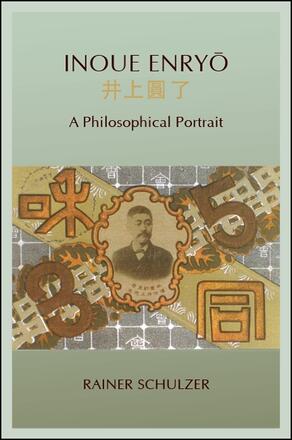
Inoue Enryō
A Philosophical Portrait
Alternative formats available from:
The first comprehensive treatment of Inoue Enryō, a pioneer of modern Buddhism and a key figure in the reception of Western philosophy in East Asia.
Description
Rainer Schulzer provides the first comprehensive study, in English, of the modern Japanese philosopher Inoue Enryō (1858–1919). Enryō was a key figure in several important intellectual trends in Meiji Japan, including the establishment of academic philosophy, the public campaign against superstition, the permeation of imperial ideology, and the emergence of modern Japanese Buddhism. As one of the most widely read intellectuals of his time and one of the first Japanese authors ever translated into Chinese, an understanding of Enryō's work and influence is indispensable for understanding modern East Asian intellectual history. His role in spreading the terminology of modern East Asian humanities reveals how later thinkers such as Nishida Kitarō and Suzuki T. Daisetsu emerged; while his key principles, Love of Truth and Protection of Country, illustrate the tensions inherent in Enryō's enlightenment views and his dedication to the rise of the Japanese empire. The book also presents a systematic reconstruction of what was the first attempt to give Buddhism a sound philosophical foundation for the modern world.
Rainer Schulzer is Associate Professor of Philosophy at Toyo University, Tokyo, Japan.
Reviews
"…[a] timely book … Schulzer's engaging work is highly relevant for those working on modern Japanese philosophy, and should appeal more broadly to any scholar with an interest in the development of the humanities in East Asia. " — Frontiers of Philosophy in China
"This book is filled with interesting and important details about the unfolding of Enryō's life and the formation of his major works. Schulzer also develops broader themes in terms of Japan's intellectual and sociopolitical encounters with the West in light of the advent of its modern self-definition in the context of being part of a global arena for the first time. " — Steven Heine, author of From Chinese Chan to Japanese Zen: A Remarkable Century of Transmission and Transformation